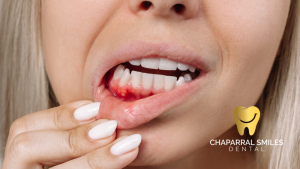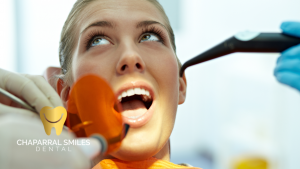Maintaining good oral hygiene is crucial for overall health and well-being. Poor oral hygiene can lead to a variety of dental problems such as cavities, gum disease, bad breath, and even tooth loss. Additionally, research has shown that poor oral health is linked to other health issues such as heart disease, diabetes, and respiratory infections. By practicing good oral hygiene, individuals can prevent these issues and maintain a healthy smile.
Furthermore, good oral hygiene can also have a positive impact on one’s self-esteem and confidence. A healthy smile can boost self-confidence and make a great first impression. It can also contribute to better social interactions and overall mental well-being. Therefore, it is essential to prioritize oral hygiene as part of a daily routine to ensure overall health and confidence.
Key Takeaways
- Good oral hygiene is important for overall health and well-being
- Brushing and flossing daily is essential for maintaining oral health
- Proper brushing techniques include using a soft-bristled brush and gentle circular motions
- Flossing and interdental cleaning help remove plaque and food particles between teeth
- Avoiding harmful habits like smoking and excessive sugar consumption is crucial for oral health
- Regular dental check-ups are necessary for early detection and prevention of oral health issues
- Dietary tips for oral health include consuming plenty of water, limiting sugary and acidic foods, and eating a balanced diet
Daily Oral Hygiene Routine
Establishing a daily oral hygiene routine is essential for maintaining good oral health. This routine should include brushing at least twice a day, flossing, and using mouthwash. It is important to brush in the morning and before bed to remove plaque and bacteria that have accumulated throughout the day. Additionally, flossing helps to remove food particles and plaque from between the teeth and along the gumline, where a toothbrush cannot reach. Using mouthwash can help to kill bacteria and freshen breath.
In addition to these daily practices, it is important to maintain a healthy diet and limit sugary and acidic foods and beverages. These can contribute to tooth decay and erosion. Drinking plenty of water throughout the day can also help to wash away food particles and bacteria. By incorporating these habits into a daily routine, individuals can maintain good oral hygiene and prevent dental issues.
Proper Brushing Techniques
Proper brushing techniques are essential for effective plaque removal and maintaining good oral hygiene. When brushing, it is important to use a soft-bristled toothbrush and fluoride toothpaste. The toothbrush should be held at a 45-degree angle to the gums and moved in a gentle, circular motion to effectively remove plaque and debris. It is important to brush all surfaces of the teeth, including the front, back, and chewing surfaces.
Furthermore, it is important to brush for at least two minutes each time to ensure thorough cleaning. Many people may not realize that they are not brushing for long enough, which can lead to inadequate plaque removal. Using a timer or an electric toothbrush with a built-in timer can help ensure that enough time is spent on brushing. By following these proper brushing techniques, individuals can effectively remove plaque and maintain good oral hygiene.
Flossing and Interdental Cleaning
| Category | Metrics |
|---|---|
| Flossing | Percentage of people who floss daily |
| Interdental Cleaning | Types of interdental cleaning tools used (e.g. interdental brushes, water flossers) |
| Effectiveness | Reduction in plaque and gum disease with regular flossing and interdental cleaning |
| Challenges | Common barriers to consistent flossing and interdental cleaning |
Flossing and interdental cleaning are essential components of a good oral hygiene routine. Flossing helps to remove plaque and food particles from between the teeth and along the gumline, where a toothbrush cannot reach. It is important to floss at least once a day, preferably before bedtime, to ensure thorough cleaning.
In addition to traditional flossing, there are other interdental cleaning tools that can be used to clean between the teeth, such as interdental brushes or water flossers. These tools can be especially helpful for individuals with braces or dental restorations that make traditional flossing difficult. By incorporating flossing and interdental cleaning into a daily routine, individuals can effectively remove plaque and prevent gum disease.
Avoiding Harmful Habits
In addition to practicing good oral hygiene habits, it is important to avoid harmful habits that can negatively impact oral health. One of the most common harmful habits is smoking or using tobacco products, which can lead to gum disease, tooth decay, and oral cancer. Additionally, excessive consumption of sugary and acidic foods and beverages can contribute to tooth decay and erosion.
Another harmful habit to avoid is using teeth as tools, such as opening bottles or tearing open packages. This can lead to chipped or cracked teeth and damage to the enamel. Furthermore, grinding or clenching the teeth can lead to worn-down enamel, jaw pain, and headaches. By avoiding these harmful habits, individuals can protect their oral health and prevent dental issues.
Regular Dental Check-ups

Regular dental check-ups are an essential part of maintaining good oral health. It is recommended to visit the dentist at least twice a year for a professional cleaning and examination. During these check-ups, the dentist will thoroughly clean the teeth and check for any signs of dental issues such as cavities, gum disease, or oral cancer.
Additionally, regular dental check-ups allow the dentist to detect any issues early on and provide appropriate treatment before they progress into more serious problems. The dentist can also provide personalized recommendations for maintaining good oral hygiene based on individual needs. By scheduling regular dental check-ups, individuals can ensure that their oral health is in good condition and prevent potential dental issues.
Dietary Tips for Oral Health
Maintaining a healthy diet is essential for good oral health. It is important to limit sugary and acidic foods and beverages, as they can contribute to tooth decay and erosion. Instead, focus on consuming a balanced diet rich in fruits, vegetables, lean proteins, and whole grains. These foods provide essential nutrients that support overall health, including oral health.
In addition to choosing healthy foods, it is important to drink plenty of water throughout the day. Water helps to wash away food particles and bacteria that can contribute to plaque formation and bad breath. Furthermore, chewing sugar-free gum after meals can help stimulate saliva production, which helps to neutralize acids in the mouth and wash away food particles. By following these dietary tips, individuals can support good oral health and overall well-being.
In conclusion, maintaining good oral hygiene is essential for overall health and well-being. By establishing a daily oral hygiene routine that includes proper brushing techniques, flossing, interdental cleaning, avoiding harmful habits, scheduling regular dental check-ups, and following dietary tips for oral health, individuals can prevent dental issues and maintain a healthy smile. Prioritizing oral hygiene not only contributes to physical health but also boosts self-esteem and confidence. Therefore, it is important to make oral hygiene a priority in daily life for a healthy smile and overall well-being.
If you’re looking for more tips on maintaining good oral hygiene, check out the blog section of Chaparral Smiles Dental’s website. They offer a variety of articles on dental care, including tips for parents and information on cosmetic care. You can find more helpful resources and advice to help prevent the need for root canal treatment. https://www.chaparralsmilesdental.com/blog/





